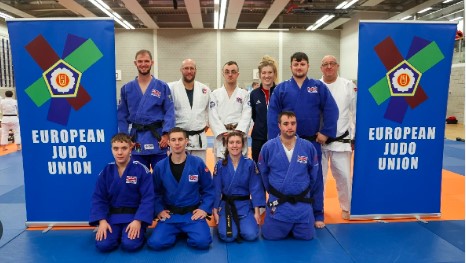Great Britain Leads the Way in Adapted Judo
Great Britain has emerged as a global leader in the development and promotion of adapted judo, a sport that brings the principles of inclusion and accessibility to one of the world’s most celebrated martial arts. Adapted judo modifies traditional judo techniques and competition formats to accommodate individuals with disabilities, ensuring that the sport is both safe and enjoyable for all participants.
Through a combination of pioneering programs, committed organizations, and world-class athletes, Great Britain has demonstrated how adapted judo can transform lives, fostering physical fitness, confidence, and community spirit among participants.
Adapted Judo: A Brief Overview
Adapted judo follows the same foundational principles as traditional judo, emphasizing mutual respect, maximum efficiency, and personal growth. However, modifications are made to meet the needs of individuals with physical, sensory, or intellectual impairments.
For example, visually impaired judokas start matches with physical contact to ensure fairness, while athletes with limited mobility focus more on groundwork techniques (katame-waza). Rules, equipment, and coaching methods are also adapted to create an inclusive environment without compromising the spirit of the sport.
Great Britain’s Commitment to Adapted Judo
Great Britain’s leadership in adapted judo stems from a well-established culture of inclusivity in sports. Organizations such as the British Judo Association (BJA) and the British Paralympic Association have played a vital role in making judo accessible to all.
The BJA has implemented specialized training programs for coaches to equip them with the skills needed to work with athletes with disabilities. These programs focus on understanding individual needs, creating adaptive training plans, and fostering an inclusive dojo environment.
Moreover, the UK has invested in grassroots initiatives that encourage participation from people of all abilities. Community-based judo clubs, often supported by grants and local partnerships, provide opportunities for individuals to engage in the sport regardless of their physical or intellectual limitations.
World-Class Athletes and Success Stories
Great Britain’s impact on adapted judo is exemplified by its athletes’ success on the international stage. British judokas have consistently excelled at events such as the Paralympic Games and the IBSA (International Blind Sports Federation) Judo World Championships.
One standout figure is Chris Skelley, a visually impaired judoka who won gold in the men’s 100kg category at the Tokyo 2020 Paralympic Games. Skelley’s journey, marked by determination and resilience, has inspired countless individuals to pursue their dreams regardless of challenges.
Another iconic athlete is Elliot Stewart, who secured a silver medal at the Tokyo Paralympics. Coming from a family with a strong judo tradition, Stewart has become a symbol of the sport’s ability to unite and empower.
These athletes not only demonstrate technical excellence but also embody the values of perseverance, humility, and respect that lie at the heart of judo. Their achievements have heightened the profile of adapted judo in Great Britain, inspiring a new generation of participants.
Social Impact of Adapted Judo in Britain
Beyond competitive success, adapted judo has made a profound social impact in Great Britain. For many participants, judo is more than a sport; it is a pathway to improved physical health, self-esteem, and social connections.
Adapted judo programs in schools and community centers provide children with disabilities opportunities to engage in physical activity, build confidence, and develop lifelong skills. These initiatives often collaborate with charities and disability organizations, further enhancing their reach and impact.
The inclusive nature of adapted judo also helps break down barriers and challenge stereotypes. By showcasing the abilities of disabled athletes, the sport promotes a more inclusive society where diversity is celebrated.
Through events, workshops, and international collaborations, British organizations and coaches continue to spread the message of inclusion. Their efforts ensure that judo remains a sport for everyone, regardless of ability.
Conclusion
Great Britain’s leadership in adapted judo is a testament to the power of inclusivity and innovation in sports. By fostering a supportive environment, nurturing talent, and promoting equality, the country has shown how adapted judo can transform lives and inspire communities.
As the movement continues to grow, Great Britain’s commitment to adapted judo will remain a shining example of how sports can break down barriers and create opportunities for all.







